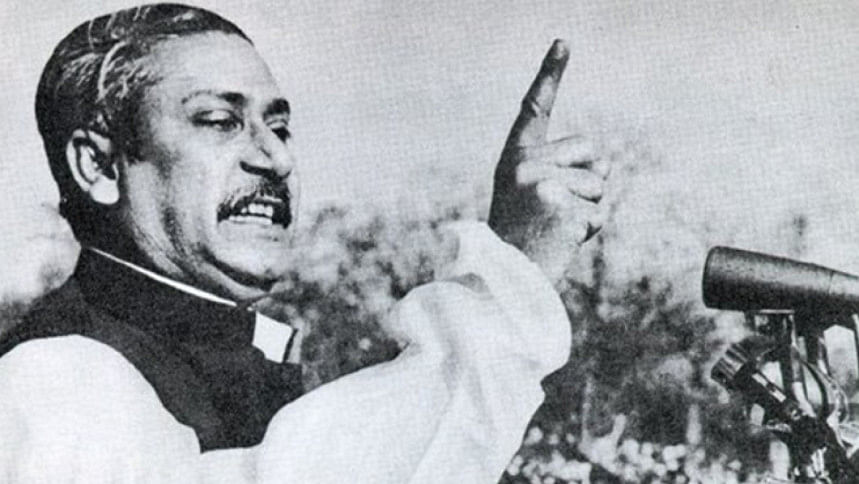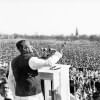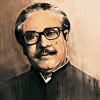Lessons to learn from Bangabandhu’s speeches

Bangabandhu Sheikh Mujibur Rahman left us valuable teaching on freedom and unity. His speeches have transcended boundaries and today the 7th March speech is considered part of the World's Documentary Heritage by UNESCO. Bangabandhu is a role model in the political sphere but even on a personal level, many lessons can be learned from his speeches.
Here are five lessons you can learn from Bangabandhu about public speaking.
Connecting with the audience
A lot of factors make a speech 'great' but one that is often forgotten while delivering a speech is rapport. A public speaker should build a connection with the audience as early as possible. This makes it easy for the speaker to deliver their message. If the audience does not like your mannerism and approach, it lowers the value of your speech.
If you watch the speech of 7th March 1971, you will notice how Bangabandhu starts his speech with "Bhaiyera amar…" (Brothers of mine). Through this approach, he builds rapport instantly and makes it known that he is one with the people.
Body language
Both in social interactions and public speaking, body language plays an important role. On a subconscious level, your body language leaves an impression on your audience, whether it's good or bad that depends on your body language.
Bangabandhu maintained an impressionable body language in all of his speeches. He does not lean and he does not show the slightest hint of weakness. He moves his hands and uses his finger when saying an important line and he does so with power.
Strong delivery
Confidence in yourself and your presentation and words are important. If you are stammering, if your nerve gets the better of you, if you cannot formulate words during your speech then the audience will not accept it. A lack of confidence can ruin a presentation in a matter of seconds.
During his speech at the UN on September 25, 1974, he presented in Bangla. It didn't matter that he was speaking in a room full of foreign delegates, it did not matter that he was doing it on such a grand stage. He did it to make a point and send a message and the Father of the Nation did so with confidence.
If you are speaking on a public forum, make sure that you are delivering in a way that has the tone of your own belief in it because if you do not believe in your own words, no one else will either.
Concise presentation
One of the cardinal sins of a presentation is to go off topic. It's an issue that is often noticed but rarely addressed. The audience does not like a speaker who frequently goes off topic. Make sure to eliminate any unnecessary discussions from your speech.
The speech of 7th March is a great example of a concise presentation. Bangabandhu stays on point, and talks about the issue at hand and how to deal with it. The speech isn't long but it delivers the message and does it with grace.
Intelligent narrative
The objective of a speech is to deliver a message to the audience. So, it is very important to choose your words carefully. What to say, and more importantly — how to say it? If you do not arrange your concepts and form a narrative, your speech will be random.
Instead of randomly discussing topics, discuss them in relevance. Try to move in a linear progression rather than jumping from topic to topic. And remember to pronounce clearly. Being too fast will cause the audience to lose concentration and being too slow will bore them. You want the audience to hear what you are saying so you must speak at optimal speed.
All the speeches of Bangabandhu are shining examples of intelligent narrative. In the 7th March speech, he starts discussing the chain of events from the beginning and moves in linear direction along the events. And his delivery is neither fast nor slow — just right to hold the attention. And his intonation matches his words and their gravity, making the speech more than memorable.
No wonder it is celebrated as one of the greatest speeches in the world.

 For all latest news, follow The Daily Star's Google News channel.
For all latest news, follow The Daily Star's Google News channel. 








Comments